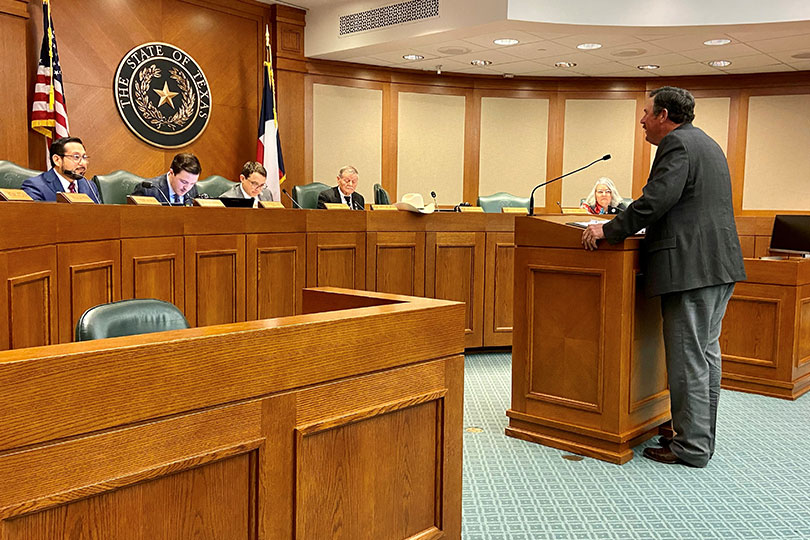By Julie Tomascik
Editor
Texas Farm Bureau (TFB) testified today before the Texas House Committee on Agriculture & Livestock in support of HJR 126, the proposed constitutional amendment that aims to protect the right to farm in Texas.
As the state grows increasingly urban, farmers and ranchers are concerned that local government regulations could jeopardize the future of some agricultural operations.
There are several examples in the Dallas-Fort Worth area where cities are using their public nuisance ordinances to prohibit agricultural activities. In one city, grass grown for hay is not allowed to grow taller than 12 inches without the city mowing the property and sending the bill to the farmer.
Some cities are arbitrarily requiring buffer zones of up to 250 feet around the property to be mowed short. That takes significant acreage out of production.
TFB President Russell Boening, who farms and ranches with his family just 35 miles from San Antonio, shared concerns about urban sprawl.
“As development comes our way, how will it affect our operation? Will our new neighbors appreciate the fact that we are a typical ag operation providing the beef, milk and other products they consume every day? Or will they complain and ask the county or state to place restrictions on our operation? We don’t know,” Boening said. “That’s why we need HJR 126. We can’t count on a future legislature to be as friendly to Texas farmers and ranchers as you are. We could lose our right to farm protections in statute.”
The current law only protects agricultural operations annexed after Aug. 31, 1981. Trying to verify with a city which operations were annexed has proven to be a challenge.
That’s why Boening called for Texas lawmakers to use this opportunity to protect the right to farm in the Lone Star State.
“This state will continue to change, but we count on our constitutional rights to protect us. We have constitutional protection of our property rights by the Takings Clause, Equal Protection Clause and the right to due process,” Boening said. “Today, we are asking to protect our livelihoods so that we can continue providing food and fiber for our state, our nation and the world.”
The proposal was left pending by the committee.

